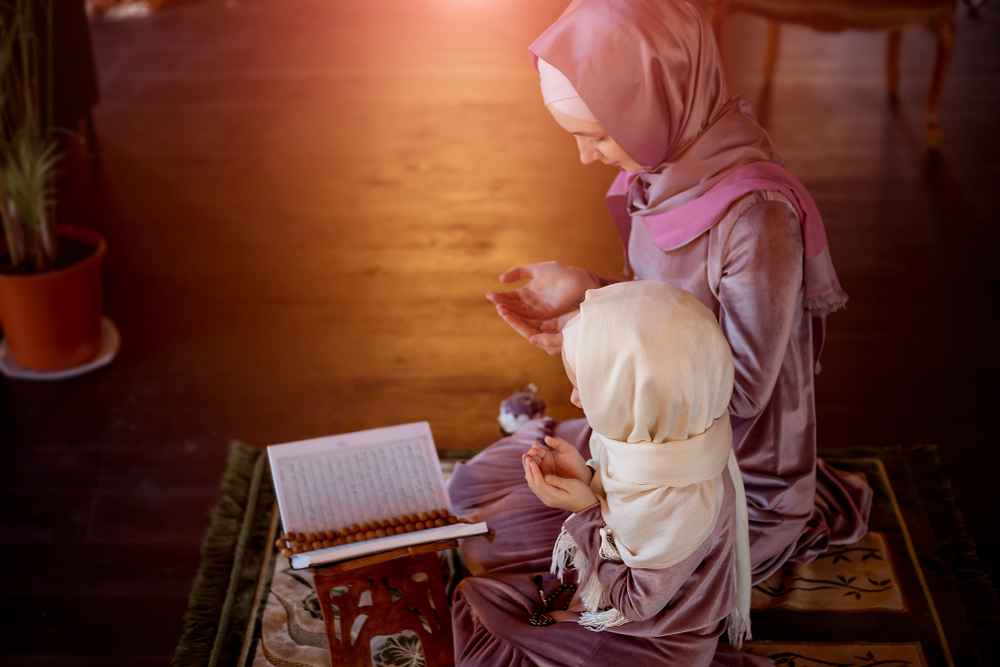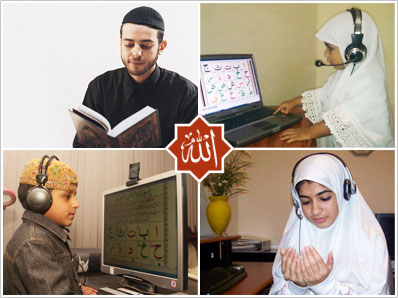Praying Namaz is very important for Muslims. It’s a special way to talk to Allah. Many people want to learn how to pray the right way. This blog post will show you how to pray Namaz step by step. By the end, you will know what to do when you pray. Let’s start learning about Namaz together!
Different Types of Salah
There are four kinds of Salah that make up the five daily prayers.
- Fardh – These are very important prayers. Missing one is a big sin.
- Wajib – These prayers are also important. Missing one is a sin, but not as serious as missing a fardh.
- Sunnah – These are prayers that the Prophet Muhammad practiced. There are two kinds:
- Muakkadah – These are prayed regularly.
- Ghair Muakkadah – These are prayed sometimes.
- Nafl – These are extra prayers you can choose to do.
Here is a table that shows how many rakats (units) each prayer has. It’s good to remember these numbers!
Preparation Before Salah (Checklist)
Before you start praying, you need to be clean. Here’s what to do:
- Be Clean: Wash yourself by doing Wudu (ablution). If you can’t use water, you can use Tayammum (dry purification) or Ghusl (full washing).
- Be Mature and Sane: You should be an adult and understand what you’re doing.
- Have the Right Intention: Know if you’re praying fardh, sunnah, or nafl.
- Complete Wudu: Make sure you have done Wudu.
- Cover Your Body:
- For boys: Wear clothes that cover from the bellybutton to below the knees.
- For girls: Wear clothes that cover the whole body except for your hands and face.
- Pray at the Right Time: Make sure to pray when it’s time.
- Face the Right Direction: Always pray towards the Qibla (Mecca).
Remember: “O Children of Adam! wear your beautiful apparel at every time and place of prayer.” (7:31)
How to Pray Fardh, Sunnah, and Nafl Salah / Namaz
Once you’re ready, you can start your prayer. Here’s how:
- Make the Right Intention (Niyyah): Before you begin, think about the prayer you want to offer. You can say it in your mind or out loud. This helps you focus on what you’re doing.For example, you might say:
- “I intend to offer the 4 rakats fardh of the Isha prayer.”
- “I intend to offer the 2 rakats nafl for Zuhr prayer.”
This way, you know exactly which prayer you’re about to do!
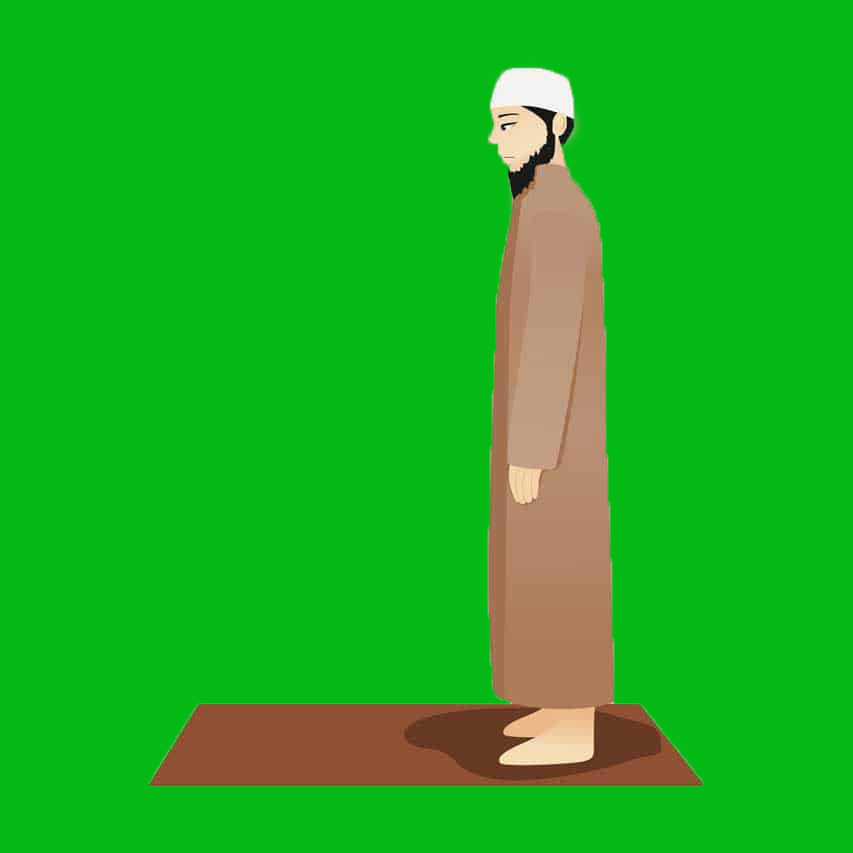
Make sure your spot is clean. Put your prayer mat down. Point it to the Qiblah. Stand up straight. Keep your feet a little apart. Look at the spot where you will put your head later. Lift your hands up to your ears. Your hands should be open. Say “Allahu Akbar.” This means “Allah is the greatest.” Now your prayer has started. If you are a girl or woman, only lift your hands up to your shoulders.
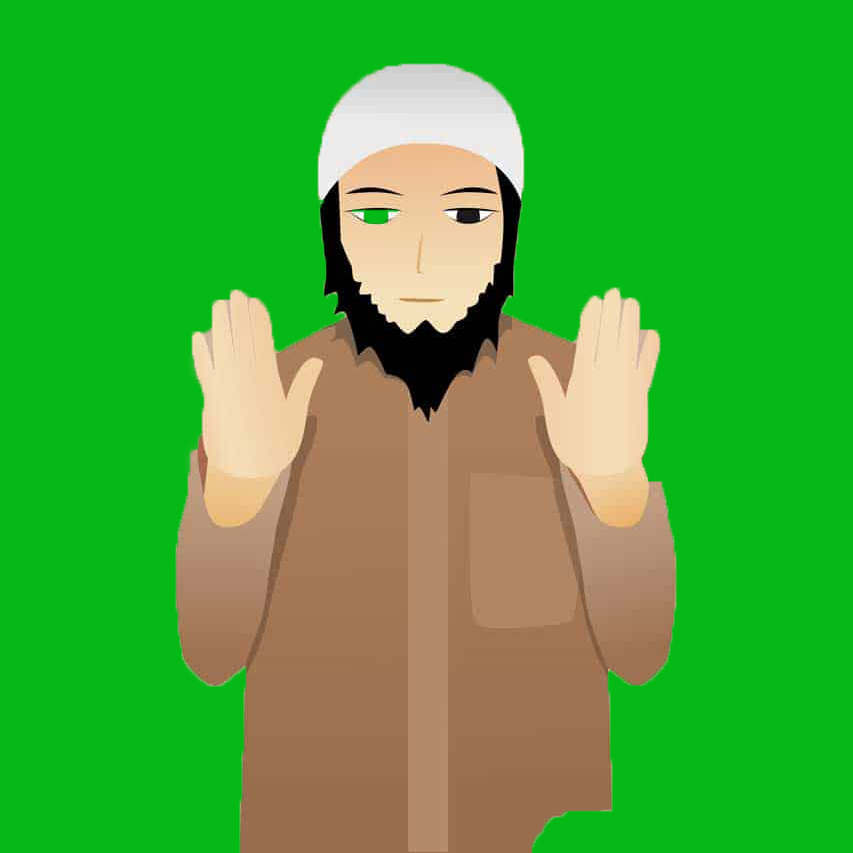
3. After Takbir, place cross your hands at chest level grabbing your left wrist with your right hand.[3] Begin with the recitation of thana. [4]
سُبْحانَكَ اللَّهُمَّ وَبِحَمْدِكَ، وَتَبارَكَ اسْمُكَ، وَتَعَالَى جَدُّكَ، وَلاَ إِلَهَ غَيْرُكَ
Subhaanaka Allaahumma wa bihamdika, wa tabaarakasmuka, wa ta’aalaa jadduka, wa laa ‘ilaaha ghayruka.
Meaning: Glory and praise be to You, O Allah. Blessed be Your name and exalted be Your majesty, there is none worthy of worship except You.
Recite Tauz or Ta’awwudh and continue with saying bismillah.
اعوذ باللہ من الشیطان الرجیم
auzu billahi minash shaitan rajeem
Meaning: I seek Allah’s protection from Satan, the accursed.
بسم الله الرحمن الرحيم
bismillah hir rahman nir Raheem
Meaning: In the name of Allah who is kind and merciful.
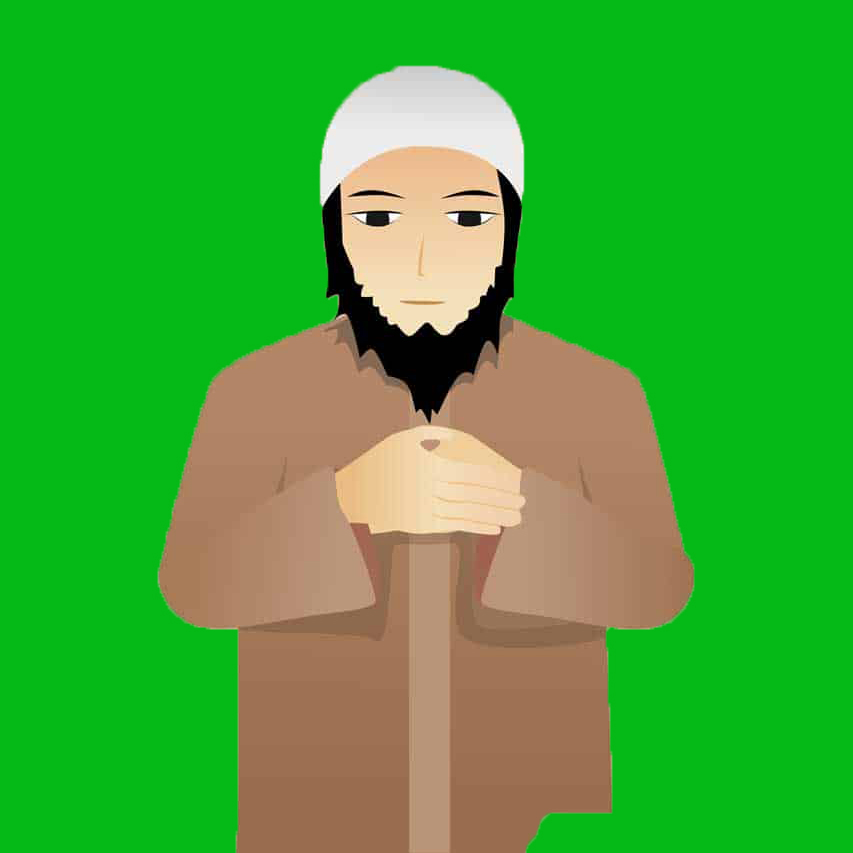
4. After this recite Surah Al-Fatiha which is the first chapter of the Quran.
اَلْحَمْدُ لِلّٰهِ رَبِّ الْعٰلَمِیْنَۙ(۱) الرَّحْمٰنِ الرَّحِیْمِۙ(۲) مٰلِكِ یَوْمِ الدِّیْنِؕ(۳) اِیَّاكَ نَعْبُدُ وَ اِیَّاكَ نَسْتَعِیْنُؕ(۴) اِهْدِنَا الصِّرَاطَ الْمُسْتَقِیْمَۙ(۵) صِرَاطَ الَّذِیْنَ اَنْعَمْتَ عَلَیْهِمْ غَیْرِ الْمَغْضُوْبِ عَلَیْهِمْ وَ لَا الضَّآلِّیْنَ۠ ۷)
Alhamdu lillaahi Rabbil ‘aalameen Ar-Rahmaanir-Raheem Maaliki Yawmid-Deen Iyyaaka na’budu wa lyyaaka nasta’een Ihdinas-Siraatal-Mustaqeem Siraatal-lazeena an’amta ‘alaihim ghayril-maghdoobi ‘alaihim wa lad-daaalleen
Meaning: Praise be to Allah, the Cherisher and Sustainer of the worlds; Most Gracious, Most Merciful; Master of the Day of Judgment. Thee do we worship, and Thine aid we seek. Show us the straight way, The way of those on whom Thou hast bestowed Thy Grace, those whose (portion) is not wrath, and who go not astray.
At the end of reciting Surah Fatiha say Ameen.
5. After saying “ameen,” read some words from the Quran. Many people like to read Surah Ikhlas. It’s short and has good rewards. You only need to do this in the first two rakats. If you’re doing more than two rakats, you can just read Surah Fatiha. Then you can go to step 6. You don’t need to read extra words after Fatiha in these rakats.
Surah Ikhlas:
بسم الله الرحمن الرحيم قل هوا لله أحد،الله الصمد، لم يلد و لم يولد، و لم يكن له كفوا أحد
Bismillah hir Rahman nir Rahim Qul Huwallahu ahad. Allahussamad. Lam yalid wa lam yu-lad. Wa lam yakun lahu kufuwan ahad.
Meaning: In the name of Allah, the most Gracious, the most Merciful. Say, He is Allah, the One. Allah is Eternal and Absolute. He begets not, nor was He begotten. And there is none co-equal unto Him.
6. Say Allahu Akbar, bend down for ruku. Ruku is the position where you keep your head and back aligned and put your hands on your knees. Here recite Tasbeeh three times or any odd number of times you like.
سُبْحَانَ رَبِّيَ الْعَظِيمِ
Subhana Rabbiyal Adhim
Meaning: Glory be to my Lord Almighty
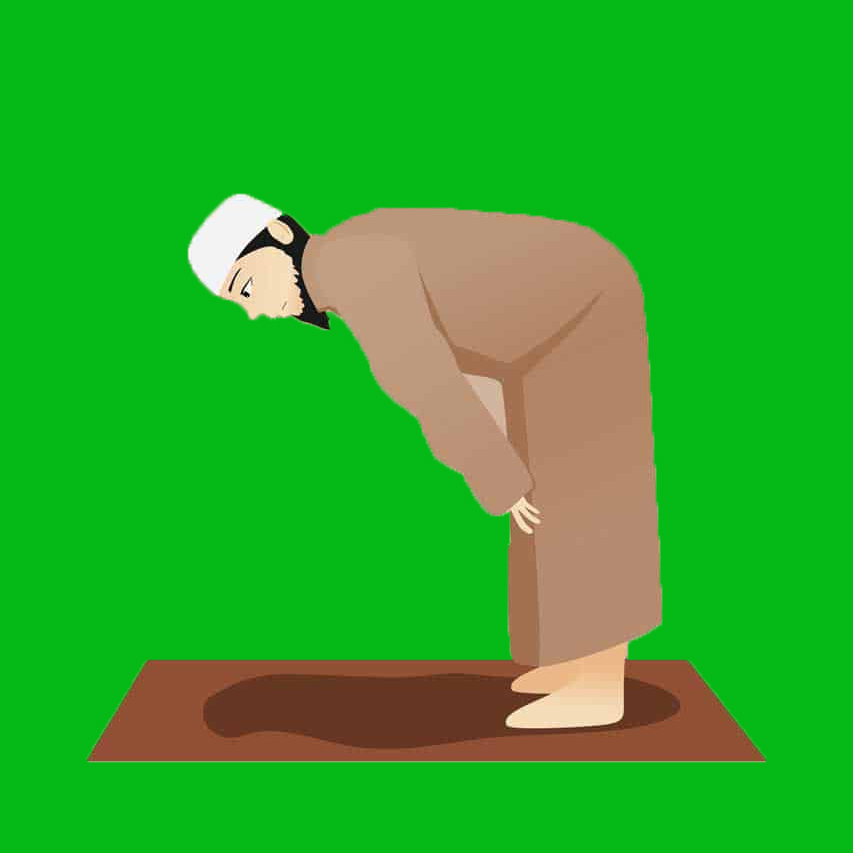
7. Next stand up from the bowing position saying [5],
سَمِعَ اللَّهُ لِمَنْ حَمِدَه
Sami’Allahu liman hamidah
Meaning: Allah hears those who praise Him
رَبَّنَا وَلَكَ الْحَمْد
Rabbana lakal hamd
Meaning: Our lord, to you be the praise.
In Hambali Fiqh, you can do something special with your hands. Before you bow down (ruku), you can lift both hands up to your ears. After you stand up from bowing, you can do it again. But when you’re standing up, keep your hands at your sides. Don’t cross them on your chest.
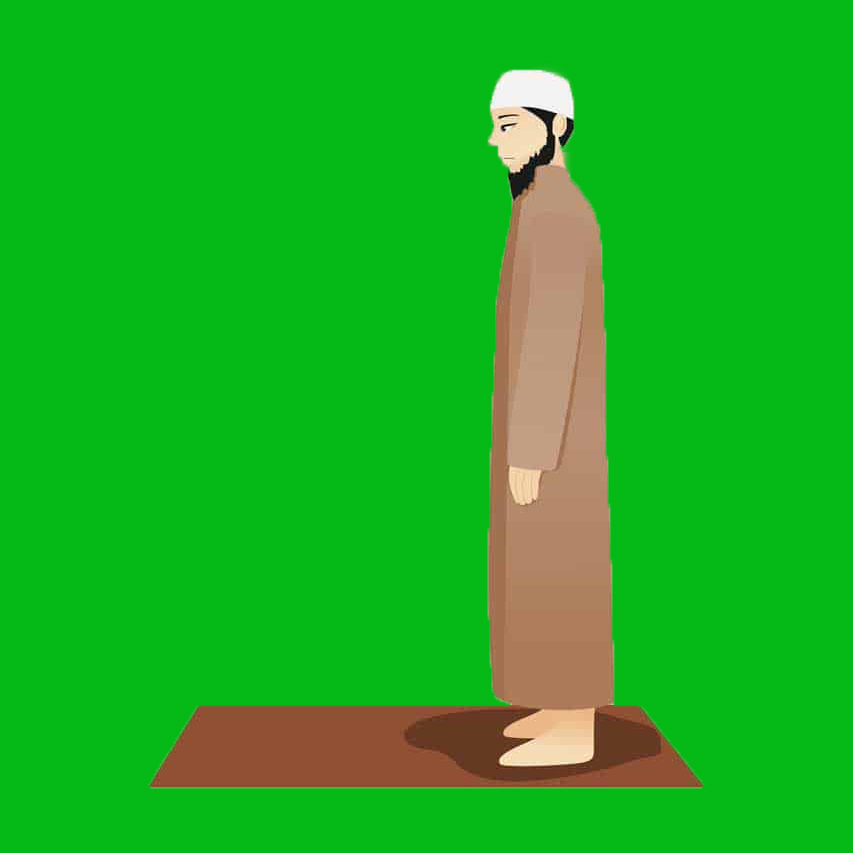
8. Say “Allahu Akbar” and go down to the floor. This is called sajdah. Five parts of your body should touch the ground:
- Your forehead
- Your nose
- Both hands
- Both knees
- Your toes
Put your head between your hands. Your thumbs should be near your ears. Keep your elbows up off the ground. Now say a special prayer three times or any odd number of times you want.
سُبْحَانَ رَبِّيَ الأَعْلَى
Subhana Rabbiyal A’la
Meaning: How Perfect is my Lord, the Highest
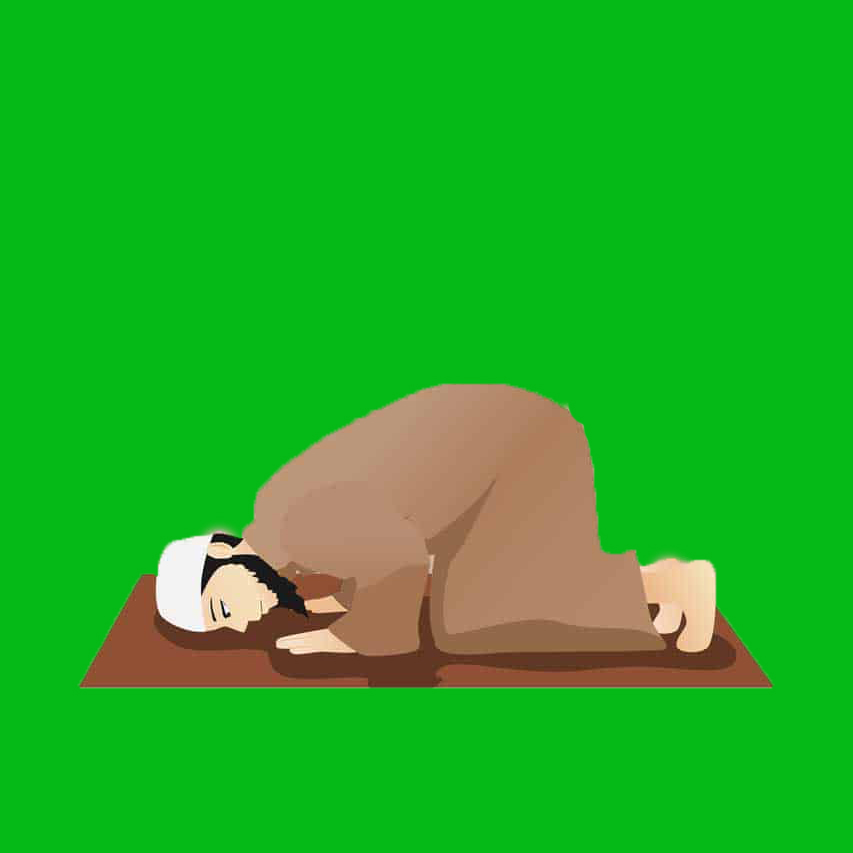
9. Say “Allahu Akbar” and sit up straight. This is a special way to sit:
- Keep your right foot up
- Put your left foot flat on the ground
This sitting is called Jalsah Al-istiraha. It’s a good way to sit in prayer.
Put your hands on your legs. Your fingers should touch your knees.
رب اغفر لي
Rabbighfir li
Meaning: O my Lord! Forgive me
Say “Allahu Akbar” and go down to the floor again. This is your second sujud. Say a special prayer three times.
Then say “Allahu Akbar” and stand up. Cross your arms like before. You have now done one full rakat.
Do the second rakat the same way. But this time, you don’t need to say the first prayer you said when you started.
After you finish the second sujud in this rakat, stay sitting. This sitting is called Jalsah.
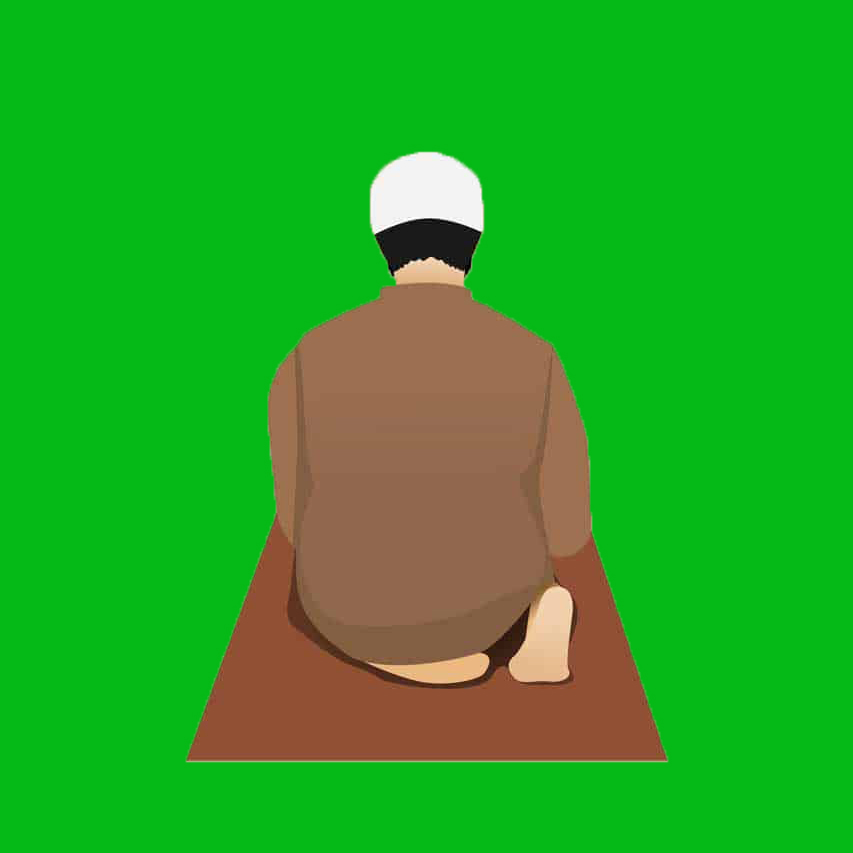
10. Here we recite Tashahhud silently:
التَّحِيَّاتُ لِلَّهِ وَالصَّلَوَاتُ وَالطَّيِّبَاتُ، السَّلاَمُ عَلَيْكَ أَيُّهَا النَّبِيُّ وَرَحْمَةُ اللَّهِ وَبَرَكَاتُهُ، السَّلاَمُ عَلَيْنَا وَعَلَى عِبَادِ اللَّهِ الصَّالِحِينَ، أَشْهَدُ أَنْ لاَ إِلَهَ إِلاَّ اللَّهُ وَأَشْهَدُ أَنَّ مُحَمَّدًا عَبْدُهُ وَرَسُولُهُ
Attahiyat lillahi wa salawatu wa’t-tayyibat, as-salamu ‘alayka ayyuha’n-Nabiyyu wa rahmat-Allahi wa barakatuhu. As-salamu ‘alayna wa ‘alaa ‘ibad-Illah is-saliheen. ashhadu alla ilaha illallah wa ashhadu anna muhammadan ‘abduhu wa rasuluhu
Meaning: All the best compliments and the prayers and the good things are for Allah. Peace and Allah’s Mercy and Blessings be on you, O Prophet! Peace be on us and on the pious slaves of Allah, I testify that none has the right to be worshipped but Allah, and I also testify that Muhammad is Allah’s slave and His Apostle.
When you say the special words about your faith, do this:
- Make a fist with your right hand
- Stick out your pointer finger
This shows that Allah is one.
If you need to do more than two rakats:
- Say “Allahu Akbar”
- Stand up and start the third rakat
If you only need to do two rakats:
- Stay sitting
- Say a special prayer for Prophet Muhammad and Prophet Ibrahim
This prayer is called Salawat. It’s a way to ask for good things for these prophets.
ٱللَّٰهُمَّ صَلِّ عَلَىٰ مُحَمَّدٍ وَعَلَىٰ آلِ مُحَمَّدٍ كَمَا صَلَّيْتَ عَلَىٰ إِبْرَاهِيمَ وَعَلَىٰ آلِ إِبْرَاهِيمَ إِنَّكَ حَمِيدٌ مَجِيدٌ ٱللَّٰهُمَّ بَارِكْ عَلَىٰ مُحَمَّدٍ وَعَلَىٰ آلِ مُحَمَّدٍ كَمَا بَارَكْتَ عَلَىٰ إِبْرَاهِيمَ وَعَلَىٰ آلِ إِبْرَاهِيمَ إِنَّكَ حَمِيدٌ مَجِيدٌ
Allahumma salli ‘ala Muhammadin Wa ‘ala ali Muhammadin Kama sallaita ‘ala Ibrahima wa ‘ala ali Ibrahima wa barik ‘ala Muhammadin wa ‘ala ali Muhammadin Kama barakta ‘ ala Ibrahima Wa ‘ ala ali Ibrahima Fil a’lamina Innaka hamidun Majid.”
Meaning: “O Allah, let Your mercy come upon Muhammad and the family of Muhammad as You let it come upon Ibrahim and the family of Ibrahim O Allah, bless Muhammad and the family of Muhammad as You blessed Ibrahim and the family of Ibrahim. Truly You are Praiseworthy and Glorious.”
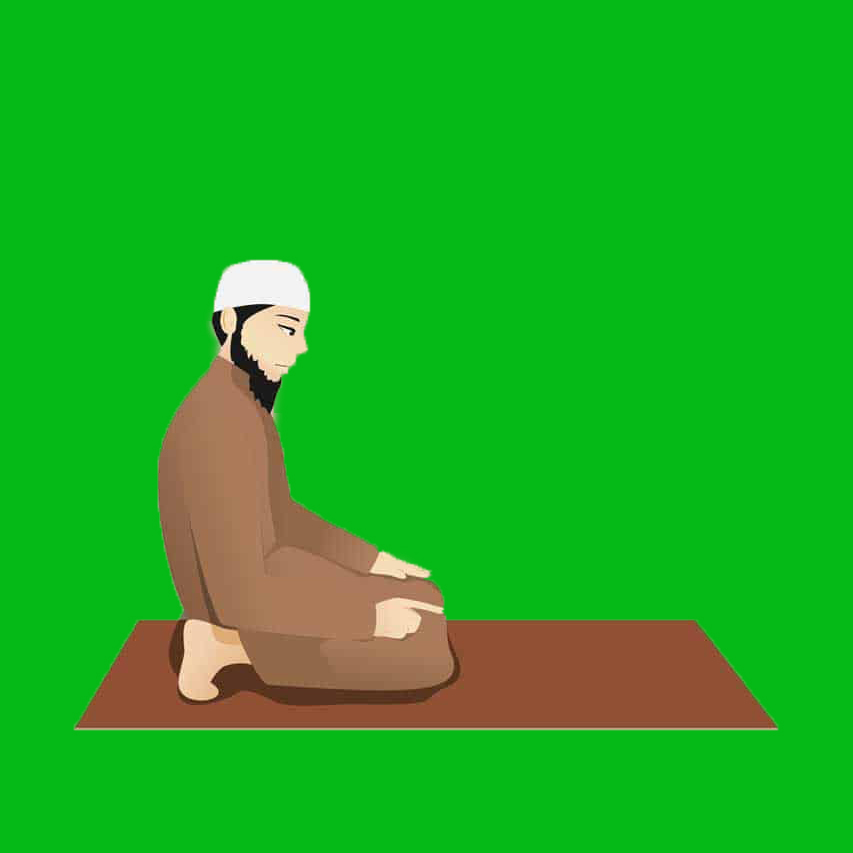
11. Turn your face towards looking over your right shoulder and then turn to left. Each time recite the following:
السَّلاَمُ عَلَيْكُمْ وَرَحْمَةُ اللهِ
Assalamu alaikum wa rahmatullah [8]
Meaning: peace and the mercy of Allah be on you.

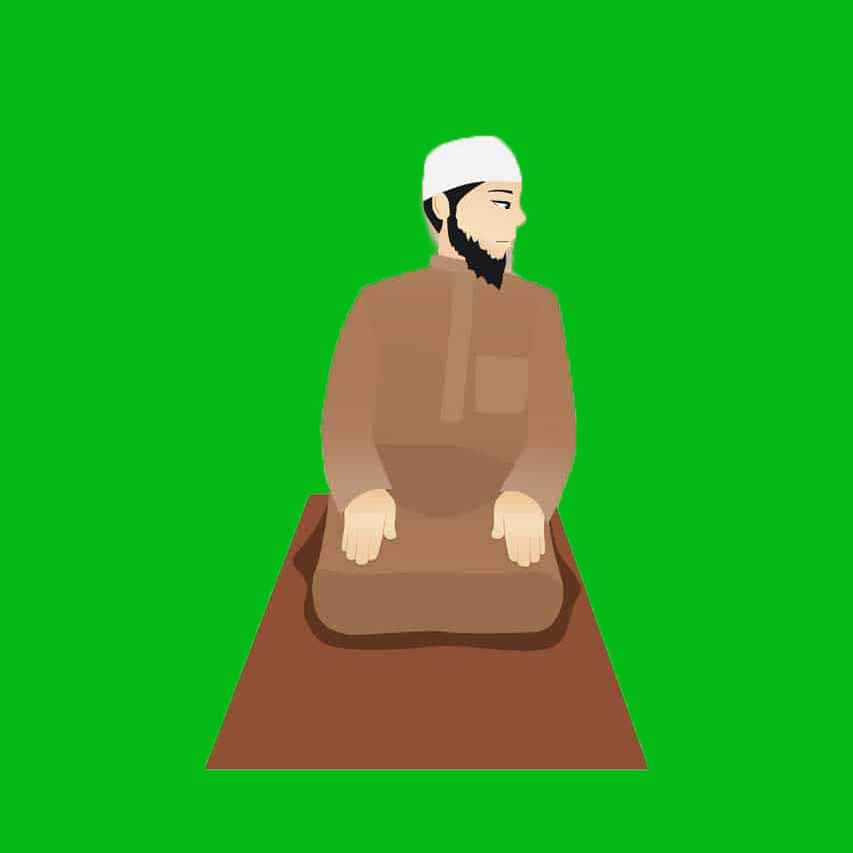
This would complete the two rakah salah. It is recommended to offer dua after salah, especially after fardh salah. [9]
Dua After Salam:
اللَّهُمَّ أَعِنِّي عَلَى ذِكْرِكَ، وَشُكْرِكَ، وَحُسْنِ عِبَادَتِكَ
Allahumma a’innee alaa dhikrika, wa shukrika, wa husni ‘ibaadatika
Meaning: O Allah, help me to remember You and thank You and help me to the best manner of worshipping You. [10]
A note for the third and fourth rakah prayers (as in Zuhr, Asr, Maghrib, and Insha) the process is the repeated as per usual. The only difference is in the third and fourth rakat Surah Fatiha is always read silently. After saying Ameen it’s not necessary to recite any other passage and to go straight into ruku and sajdah.






